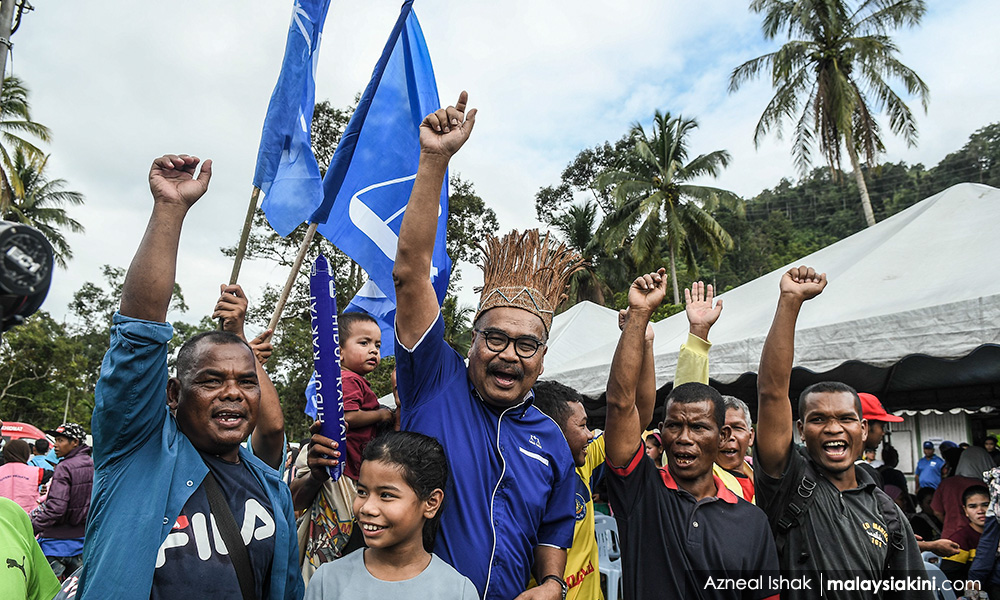
ANALYSIS | For the first time since the 14th general election (GE14), the Cameron Highlands by-election on Jan 26 will see an attempt to unseat a BN incumbent.
Given that Pakatan Harapan only won 39 percent of the vote in Cameron Highlands during GE14, its campaign had begun on the back foot and the coalition was left playing catch-up.
Standing in its way is the combined might of BN and PAS, which collectively won 57 percent of the vote during GE14.
So far, the focal point of the election is the Jelai state constituency, the eastern and less-populated half of the Cameron Highlands parliamentary constituency, where voters are made up mostly of Malays and Orang Asli.
During GE14, Harapan could muster only 10.7 percent of the votes cast in Jelai.
Here, BN's campaign has centered on its past deeds and Harapan's failure to live up to its promises, summed up in the slogan "Tiada janji, lihat bukti" (no promises, just look at the evidence).
PAS has chipped in by attacking Harapan's perceived "unIslamic-ness" and explaining why Muslims must back BN's Ramli Mohd Nor (centre in photo), a fellow Muslim, over Harapan's M Manogaran.
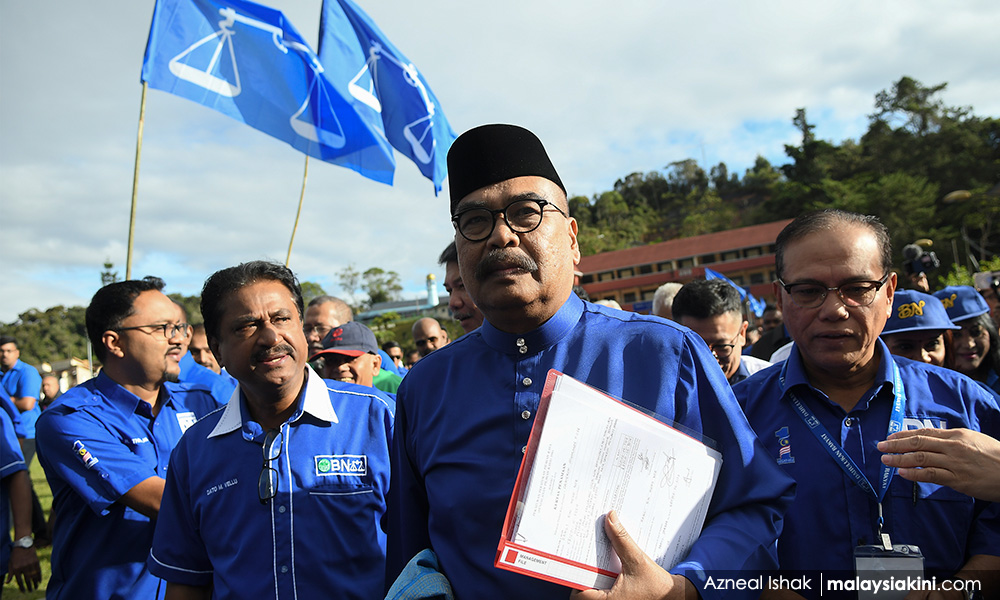
Cold reception
Based on ceramah turnouts and interviews with voters conducted by Malaysiakini, Jelai constituents do not see the value of backing the ruling party in Putrajaya.
Over the past week, Pakatan Harapan, who is trying to unseat BN in Cameron Highlands for the first time ever, has been sending their big guns such as PKR president Anwar Ibrahim, DAP secretary-general Lim Guan Eng, and Amanah president Mohamad Sabu to Jelai.
However, when Harapan's "star-studded" ceramah took place on Jan 17 in Jelai, the turnout was even smaller than that of an Islamic forum, featuring popular preacher Ustaz Kazim Elias, at a nearby mosque.
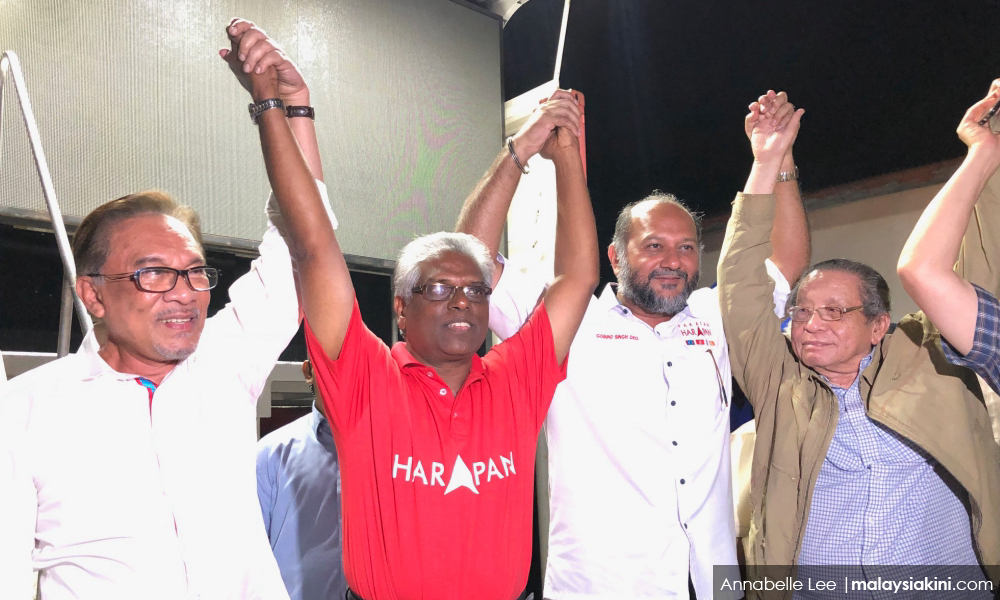
The voters that greet Harapan leaders too are not as warm and forthcoming as they were to BN leaders, who are more familiar to them.
Mohd Azlan Zainal, who is the executive director of thinktank Ilham Centre, opined that although BN has little to offer in terms of handouts and patronage, racial and religious rhetoric can be potent in the Malay heartlands.
"There is a perceived weakness (in how Harapan) handles Malay-Muslim issues and there is also a lack of assistance and incentives for the Orang Asli community.
"All this is being manipulated by BN to stir up rejection against Harapan," he said.
Enter 'Bossku'
Unlike previous by-elections, BN has also deployed its former leader Najib Abdul Razak as one of its main campaign attractions.
Shunned in urban constituencies, Najib, donning the new laidback "Bossku" persona, has been using the campaign to engineer a revival of sorts, drawing crowds among Felda settlers and Orang Asli alike in Jelai.
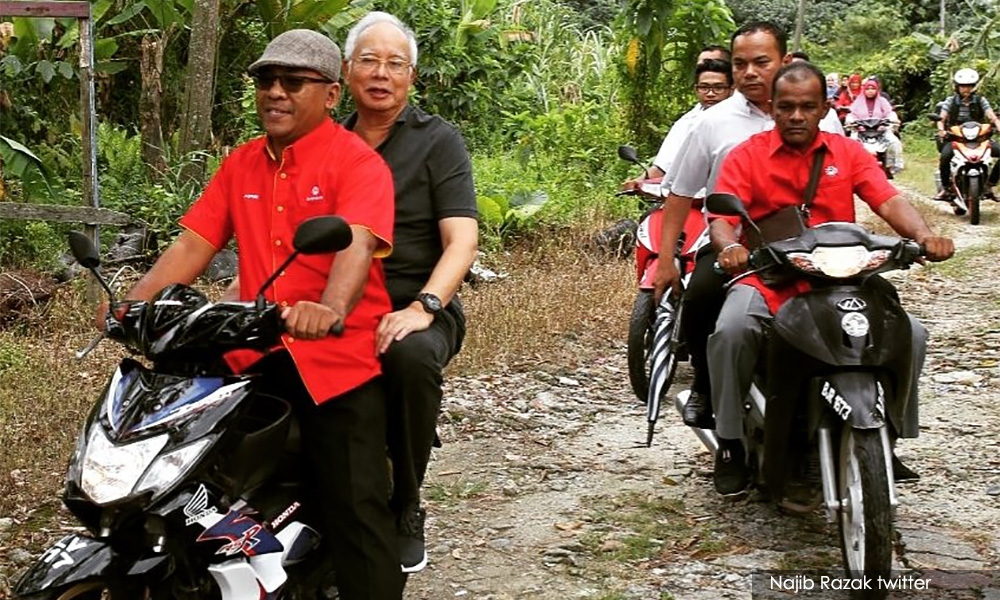
Felda settlers, who make up approximately a third of the voters in Jelai, are generally fond of Najib's father Abdul Razak Hussein, for devising the Felda scheme, and feel indebted to BN.
Others believe that Najib had prioritised the welfare of Felda settlers, citing how their income was better in the past and that they had access to welfare programmes such as BR1M, which the current government wants to do away with.
Some voters in Jelai also said they were willing to forgive Najib over the 1MDB affair - citing how patronage and graft was expected of those in high office - and that he had yet to be convicted.
The Adib factor
Unlike the plantation owners who want to relive the glory days of the Felda scheme, many PAS supporters have expressed concern over how the federal government handled Malay-Muslim issues.
Those who spoke to Malaysiakini were prejudiced against Manogaran simply because he was of the same race as those they blamed for firefighter Muhammad Adib Mohd Kassim's death during the November riots.
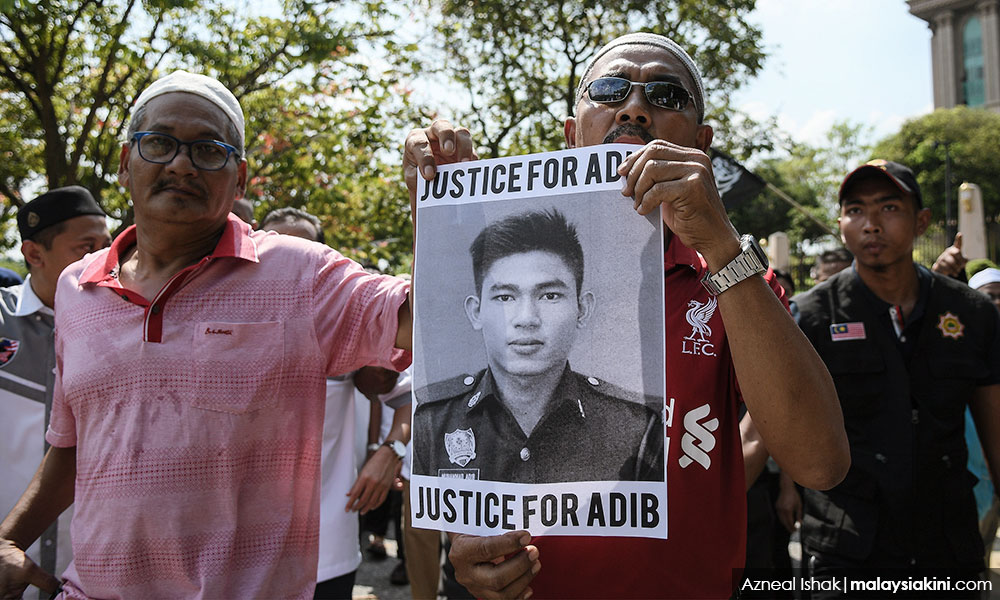
These PAS supporters blamed the Harapan government for failing to administer justice against those responsible for the death of one of their own.
So far, PAS' top guns have been turning up in numbers in Jelai and appeared more motivate to help BN, unlike the recent Sungai Kandis and Balakong by-election.
What remains to be seen is whether PAS supporters will be motivated enough to turn up at the polls, since the party did not field a candidate.
For Ilham Centre's Azlan, he believed that PAS supporters will likely be split into three groups, come polling day.
"First, there will be those who will vote for the independent candidate (Sallehudin Ab Talib), who is seen to be Malay and has familial ties, especially in Sungai Koyan.
"Secondly, those who vote for the BN candidate based on party instructions; and third, those who will not vote as a sign of protest against the co-operation between Umno and PAS," he said.
Turnout rate a concern
Meanwhile, over at Tanah Rata - the other half of the Cameron Highlands constituency - the voting sentiment of locals appears unchanged and will likely favour Harapan.
Manogaran, on his third attempt to be elected as Cameron Highlands MP, has been receiving a warm reception wherever he goes.
In contrast, Malaysiakini has observed how Tanah Rata voters sometimes go out of their way to avoid BN campaigners, especially those from MCA.
Farmers, in particular, had expressed resentment towards BN over land issues and are more comfortable with Harapan as the federal government.
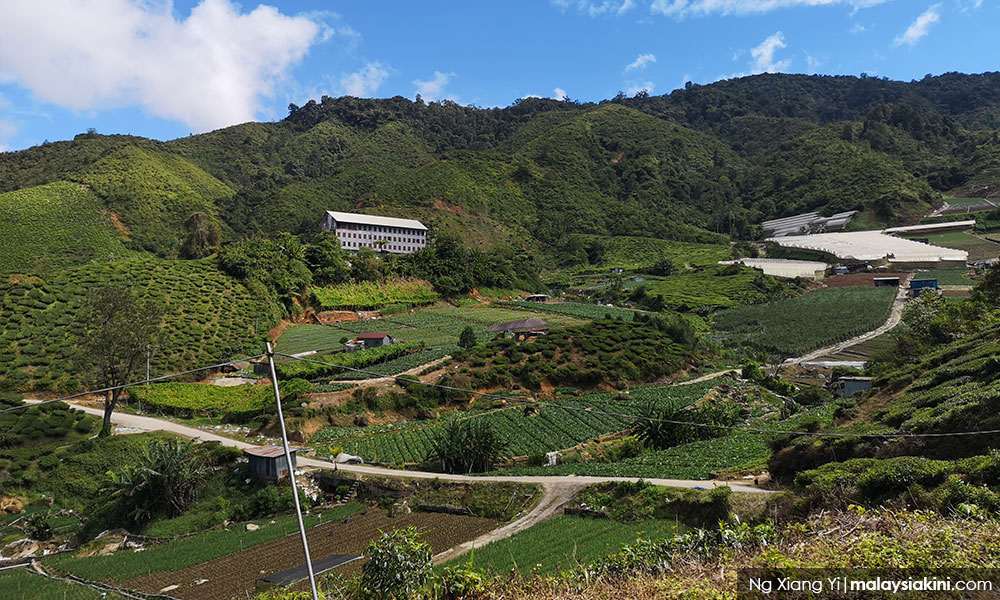
During GE14, Harapan secured 59 percent of the vote in Tanah Rata, while BN and PAS collectively took 38 percent.
However, Merdeka Center's Ibrahim Suffian said Harapan's main disadvantage in Tanah Rata was the fact that the by-election was held too close to Chinese New Year and that it would affect the turnout of this demographic.
"With Chinese New Year so close, the conventional wisdom is these voters may not come back to vote in an election that doesn't change national politics," Ibrahim said.
The Orang Asli wildcard
Away from media scrutiny throughout the campaign, and making up nearly a quarter of the voters in Cameron Highlands, are the Orang Asli.
It is estimated that 95 percent of Orang Asli voters backed BN the last time round, but now that the coalition is no longer in power, their political allegiances could be uncertain.
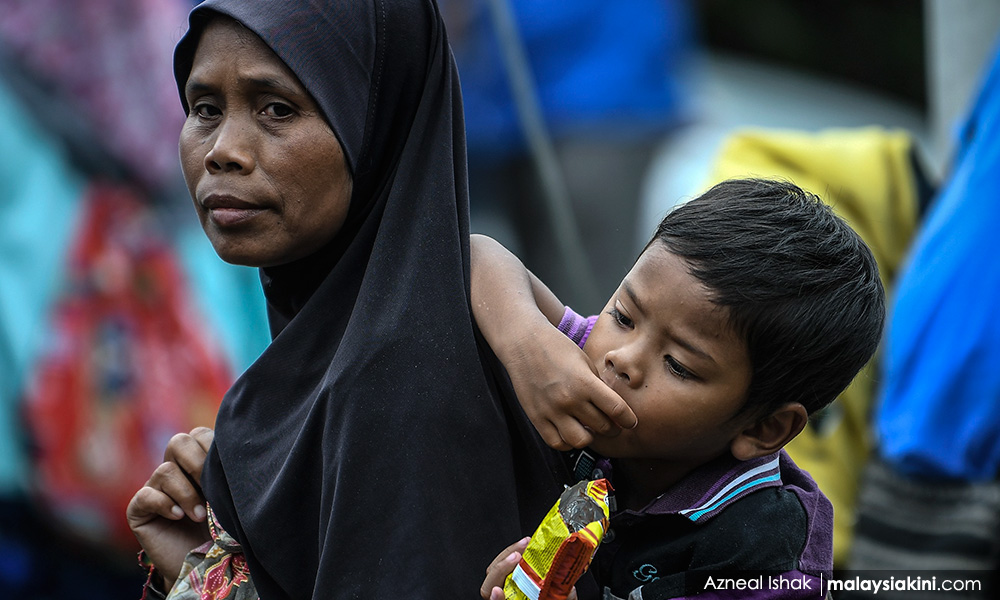
Malaysiakini has observed that Harapan campaign materials had reached some of the most remote Orang Asli villages, mostly on the back of DAP parliamentary leader Lim Kit Siang, who had been visiting the community as early as two weeks before nomination day.
It was also notable that some of the Orang Asli village chiefs (tok batin) themselves have been actively campaigning for Harapan, which would have been unthinkable just eight months ago.
Unlike the creature comforts sought by the Felda settlers, the Orang Asli's primary concern appear to be land ownership problems and environmental destruction - problems which pro-Harapan tok batin blame squarely on BN.
To make any meaningful gains, one political observer believes that Harapan would have to swing 50 percent of the Orang Asli vote, which is a tall order. - Mkini



No comments:
Post a Comment
Note: Only a member of this blog may post a comment.